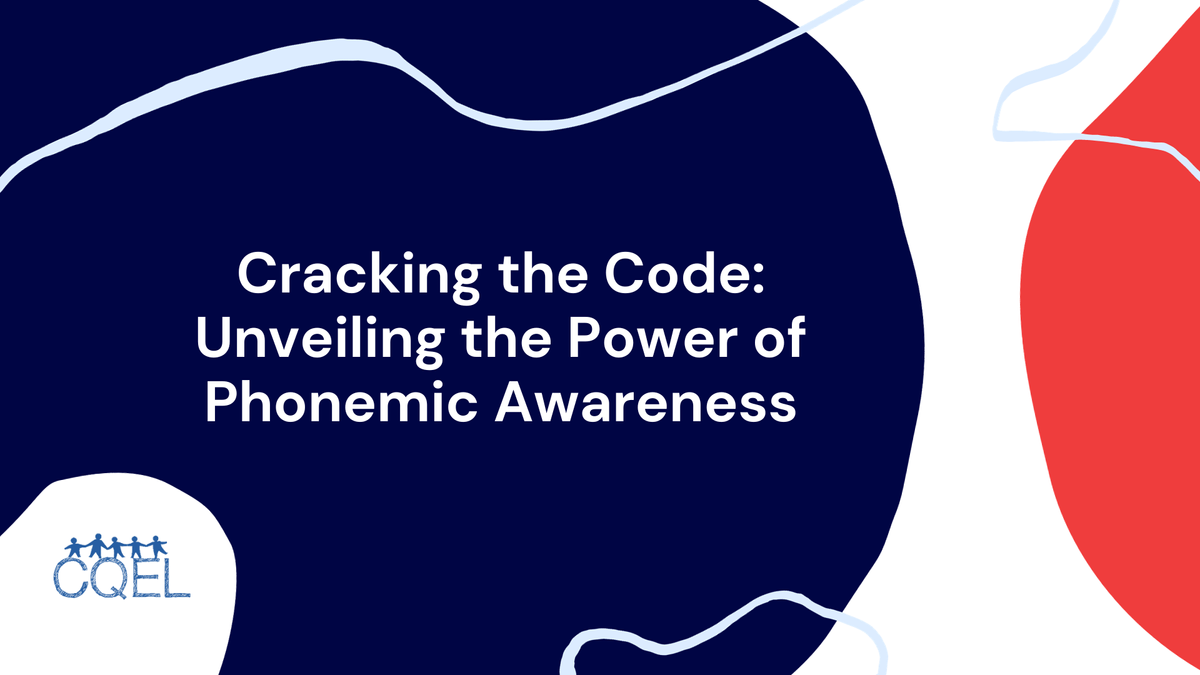Cracking the Code: Unveiling the Power of Phonemic Awareness
Imagine a world where words aren't just strings of letters but vibrant tapestries woven from tiny, shimmering sounds. This is the world of phonemic awareness, a foundational skill that unlocks the magic of reading and writing.

Imagine a world where words aren't just strings of letters, but vibrant tapestries woven from tiny, shimmering sounds. This is the world of phonemic awareness, a foundational skill that unlocks the magic of reading and writing. As aspiring childcare providers, nurturing this awareness in our little learners isn't just about ticking boxes; it's about equipping them with the tools to become confident, independent readers and communicators.
Beyond the Alphabet:
The alphabet may be the map, but phonemic awareness is the compass. It allows children to identify, segment, and manipulate the individual sounds (phonemes) that make up spoken words. It's like learning to hear the building blocks of language, the tiny bricks that, when combined, form the towering structures of sentences and stories.
Early Birds Get the Worms (and the Words):
Research shows that strong phonemic awareness is a powerful predictor of future reading success. Just like building a strong foundation for a house, developing this skill early lays the groundwork for a lifetime of literacy. By nurturing it in our preschoolers, we're not just preparing them for kindergarten; we're setting them on a path to lifelong learning and empowerment.
The Symphony of Sounds:
Phonemic awareness isn't a one-note tune; it's a vibrant orchestra of skills. It includes:
- Rhyming: Hearing the similarities and differences between words that sound alike at the end (cat/mat).
- Isolation: Picking out the first sound in a word (b-all).
- Segmentation: Breaking down words into their individual sounds (b-a-ll).
- Blending: Putting sounds together to form words (b-a-ll).
- Manipulation: Playing with sounds to create new words (b-i-ll).
Making it Playful, Not Punishing:
Remember, learning shouldn't feel like a chore. Turn phonemic awareness into a delightful adventure with engaging activities like:
- Singing silly songs: "If you're happy and you know it, clap your h-a-nds!"
- Playing rhyming games: "I spy with my little eye, something that rhymes with sky..."
- Building sound trains: Manipulate blocks or toys that represent different sounds.
- Reading aloud with enthusiasm: Let your voice dance with the rhythm of the words.
Partners in Play, Partners in Learning:
Nurturing phonemic awareness isn't a solo act. Collaborate with families by sharing resources, suggesting fun activities, and celebrating progress together. Remember, families are the first and most important teachers in a child's life.
Beyond the Classroom Walls:
Let's break down the walls between the classroom and the world. Encourage families to incorporate phonemic awareness into everyday routines – sing songs in the car, play rhyming games at the park, or read aloud before bedtime. Every interaction is an opportunity to build a love for language.
By understanding the power of phonemic awareness and using playful, engaging strategies, we can equip our little learners with the tools to unlock the magic of reading and writing. Remember, we're not just childcare providers; we're architects of literacy, building the foundation for a future where every child can explore the world through the boundless joy of language.
Additional Resources:
- Reading Rockets: https://www.readingrockets.org/
- Learning to Read: https://www.childrenlearningreading.org/
- PBS Parents: https://www.pbs.org/parents
Let's embark on this exciting journey together, nurturing a generation of confident readers and lifelong learners, one playful sound at a time!
